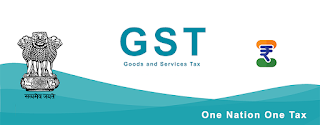Short Blog on GST

The Goods and Services Tax (GST) is a comprehensive indirect tax that is levied on the supply of goods and services in India. It was introduced in 2017 as a replacement for a number of indirect taxes that were previously levied by the central and state governments. GST is a destination-based tax, which means that it is imposed on the consumption of goods and services rather than on their production or sale. It is structured as a multi-stage tax, with tax being collected at each stage of the supply chain, from the manufacturer to the retailer. The final consumer bears the GST, but is also able to claim input tax credits for the GST paid on inputs and input services. GST is administered by the GST Council, which is composed of representatives from the central and state governments. The GST Council is responsible for making decisions about the GST rate, the rules and procedures for GST compliance, and other matters related to the GST. There are four main GS...


